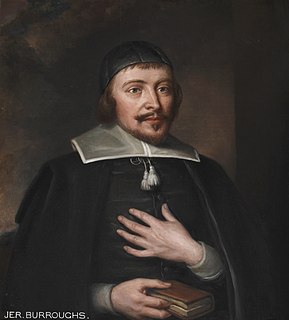A Quote by Karen Armstrong
Jewish, Christian, and Muslim theologians have insisted for centuries that God does not exist and that there is 'nothing' out there; in making these assertions, their aim was not to deny the reality of God but to safeguard God's transcendence.
Related Quotes
God is not good, or wise, or intelligent anyway that we know. So, people like Maimonides in the Jewish tradition, Eboncina in the Muslim tradition, Thomas Aquinas in the Christian tradition, insisted that we couldn't even say that God existed because our concept of existence is far too limited and they would have been horrified by the ease with which we talk about God today.
The atheist does not say 'there is no God,' but he says 'I know not what you mean by God; I am without idea of God'; the word 'God' is to me a sound conveying no clear or distinct affirmation. ... The Bible God I deny; the Christian God I disbelieve in; but I am not rash enough to say there is no God as long as you tell me you are unprepared to define God to me.
To those of us who are not theologians, does it matter whether a thing is ordained or merely allowed? Are events that seem out of control caused by God? Or does He allow them to occur at the hands of human beings? You can spend a lot of time pondering that one and end up pretty much where you started. In either case, the purpose remains the same - our sanctification. God is in the business of making us walking, breathing examples of the invisible reality of the presence of Christ in us.
When [the saints] perform actions to God, then the soul says: 'Oh! that I could do what pleases God!' When they come to suffer any cross: 'Oh, that what God does might please me!' I labour to do what pleases God, and I labour that what God does shall please me: here is a Christian indeed, who shall endeavour both these. It is but one side of a Christian to endeavour to do what pleases God; you must as well endeavour to be pleased with what God does, and so you will come to be a complete Christian when you can do both, and that is the first thing in the excellence of this grace of contentment.
The position of the Atheist is a clear and reasonable one. I know nothing about ‘God’ and therefore I do not believe in Him or in it; what you tell me about your God is self?contradictory, and therefore incredible. I do not deny ‘God,’ which is an unknown tongue to me; I do deny your God, who is an impossibility. I am without God.
For me, in those days, the great question was: Does God exist? Or doesn't God exist? Can we, by an attitude of faith, attain to a sense of community and a better world? Or, if God doesn't exist, what do we do then? What does our world look like then? In none of this was there the least political colour.


































